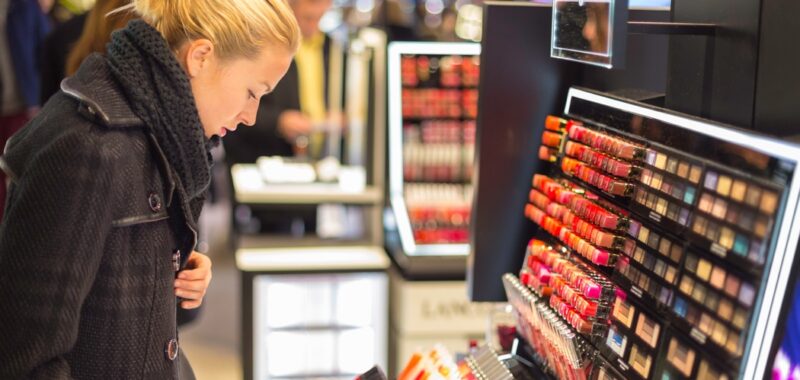After the post-pandemic euphoria marked by a two-digit growth in North America and Europe, in particular driven by the makeup and perfume segments, in 2024, the French prestige beauty market entered a phase of sharp slowdown.
The first quarter 2025 now points to a break in momentum, with a -2% decline in value, compared to a steady growth at +8% over the same period from January to March 2024.
“The Christmas season 2024 was not really profitable, contrary to the previous years. Today, concerns over the slowdown of the French market are clear, because it affects all categories,” confirms Lion.
Perfumes, the historic pillar of this segment, resisted slightly better, with -1% in value and -4% in units, but what is most surprising is that the makeup category, which still grew by +15% in early 2024, fell down to -4% in value and -5% in units. The most affected category is skincare, with -5% in value and -9% in volume. Only the hair segment, marginal in size, grew by 25% in value and 17% in units.
This market decline is visible in all distribution channels: physical stores posted -2% results, while e-commerce remained stable, overall, at +1%, in particular thanks to perfumes, which grew by +7% in this channel.
Perfumes: polarisation between ultra-luxury and accessibility
A few segments are still holding their own. In the perfume category, women’s perfumes were stronger than men’s, and so were sets, which grew at +8%. “This points to a pricing problem, with a strong tendency towards promotional offers,” says the expert.
It should also be noted that highly concentrated extracts and perfumes still grew at +18%, as well as body sprays (+43%) and hair perfumes (+5%).
“This choice difference among consumers highlights a double trend. On the one hand, some of them are ready to invest in more luxurious and more intense products, and on the other, a target that is younger or more sensitive to prices is turning to affordable offerings, including body sprays, available for 23 euros on average, compared to 110 euros for an extract,” emphasizes Lion.
In addition, Eaux de Toilette keep declining, at -12% this year, while Eaux de Parfum have stopped growing for the first year.
A marked turnaround for makeup
If makeup used to be a growth driver for the prestige market, it is now in decline, with the exception of a few segments. That of complexion, which had been growing over the past few years, experienced a reversal, with -7%. Only tinted creams (+9%) and accessories keep growing. The lip segment remains slightly positive, mainly driven by hybrid products (balms, oils, liners), while lipsticks are declining.
More surprisingly, concealers and highlighters, widely popular over the past few years, in line with the trend of lighter, more natural routines, declined at -14% and -28%, respectively.
“The main change compared to 2024 is that the category was significantly driven by private labels and exclusive brands, which soared over the past few years, at the expense of historical players. They have now declined at -4% in makeup,” adds Lion.
Skincare is struggling
In the skincare category, all segments are declining, except for sets, again (+7% in value), and technical body care products (deodorants, serums), which achieved a double-digit growth, illustrating the importance of new gestures and textures in the body care segment.
As far as face care is concerned, the only segments growing are cleansers (+5%), clarifying toners (+3%), and non-tinted lip care products, which soared at +26%.
The UK and the South of Europe remain dynamic
On the regional level, the European growth remained positive, at +3% in value, in the first quarter, compared to +10% in value in the same period in 2024. This can be explained by the slump, particularly visible in France, but also in Germany, which experienced a decline at -4%, unlike the UK, Spain, and Italy, which show positive dynamics.
Outside of Europe, the American market grew only slightly, with +1% in the first quarter.
“The year 2025 should be tricky for brands and prestige beauty companies. While a few pockets of growth remain, the challenge will be to re-engage consumers by reaffirming the added value of prestige products compared to other consumption models. In a difficult economic climate, price remains a critical issue, as does competition from other sectors and consumer platforms. For example, we have found that on the French market, companies including Rituals, Adopt, and Aroma Zone have grown strongly,” says Lion.
Still, our expert points at the need to qualify the extent of this setback. “If the French prestige market declined at -2% early this year, it still significantly grew compared to three years ago, with +17% compared to the first quarter of 2022. This sector achieved such strong growth over the past few years that it is now stabilising,” she emphasises.

